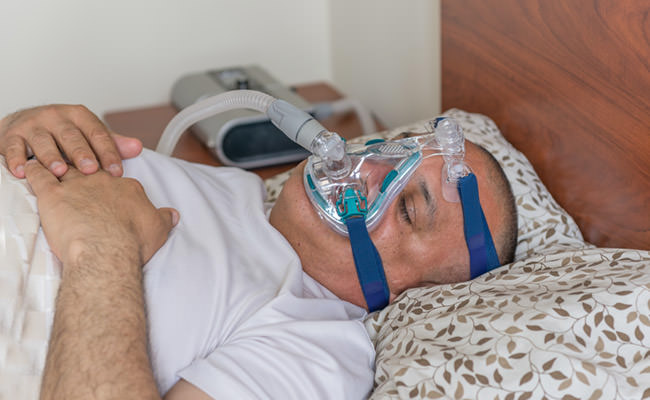
Obstructive Sleep Apnea (OSA) is a disorder where a person stops breathing repeatedly while sleeping, often multiple times in an hour. Also, if you have health issues like diabetes, hypertension, heart problems and you are doing everything your doctor has recommended but are unable to get them under control, you might have OSA.
Anyone can develop Obstructive Sleep Apnea. Some common causes are:
As an adult there are two ways to get tested and diagnosed.
First option: is a take home sleep testing device where you test at the convenience of your home. The test is dispensed to you by your Sleep MD, a sleep testing lab, or your dentist. You test at home and then return the device the following day. Your doctor will go over the study results and help you choose the treatment option that is right for you. The only disadvantage of home study is that it fails to recognize the central apneas as there is no monitoring of brain waves.
Second option: is to do the study at a sleep lab. You will be prescribed the study by your MD and you will be tested at the lab and will be monitored by the technician. The disadvantage to this test is that you will be sleeping in a new place and some people who have difficulty falling asleep may find it uncomfortable. The advantage to this is that central apneas are detected and if you have severe sleep apnea, the technician will have you try a CPAP.
For children the testing for Obstructive Sleep Apnea is done at a facility for clinical diagnosis, often located at a hospital.
Yes!! Children can be diagnosed with sleep apnea. In fact, the guidelines to diagnose obstructive sleep apnea in kids are much stricter than for adults.
There is a strong link between sleep apnea and ADD / ADHD in kids. 70% of kids who are diagnosed with ADHD have sleep disordered breathing! In many cases enlarged tonsils and adenoids obstruct their tiny airway making it harder for them to breath.
If your child has bedwetting issues or thrashing while sleeping or having difficulty at school, have your child screened for pediatric sleep apnea.
If your child is diagnosed with sleep apnea and has symptoms even after the removal of tonsils or adenoids, the volume of their airway can be grown. The dentist who is trained to treat sleep apnea in children can help grow your child’s airway.
This can be done by using dental / orthodontic expanders. There are traditional orthodontic dental expanders, Healthy Start, Myobrace, and Vivos appliance are some of the ways sleep apnea can be improved in your child.
Sleep apnea is a culprit for a number of health conditions. Your body heals itself and regenerates when you are sleeping. New cells and new nerves junctions are formed during sleep. If a person has sleep apnea and they are stopping breathing, the oxygen level in the body drops. This affects every organ in the body as the body is trying to heal itself in less than optimal conditions.
These are a few conditions that may be related to Obstructive Sleep Apnea:
In many cases there is a relation between teeth grinding / clenching and sleep apnea. Grinding of your teeth, also called nocturnal bruxism, is your body’s way of performing CPR. If you are constantly breaking your filling and crowns and chipping your teeth.
If you gag during your dental appointment, you may have sleep apnea. Ask your dentist if they can help you seek treatment for obstructive sleep disorder.
As a dentist I think I have a unique advantage to evaluate patients for obstructive sleep apnea. When you are laying back in the chair I have a direct visibility to the airway opening. If you are a clench or grind your teeth or gag and break the crowns and fillings I usually screen for obstructive sleep apnea. If you gag during the dental appointment there is a high chance that you may be suffering from sleep apnea.
CPAP is the gold standard for obstructive sleep apnea. If you are able to tolerate CPAP you should use it. If for any reason you are unable to tolerate CPAP, Mandibular advancement device may be an option for you. MAD is also called a dental appliance. It moves the jaw forward ever so slightly and opens up the airway helping you breathe better. There are numerous designs of the oral appliances. There are thousands of appliances that are FDA approved and they can treat sleep apnea. The ideal option for you will be determined by your dentist who is trained to treat obstructive sleep apnea.
In addition to the above mentioned treatment choices, lifestyle changes like:
All these will have a positive effect in decreasing the symptoms of Obstructive Sleep Apnea.
If you’re currently suffering from mild to moderate sleep apnea, call Carrollton Smiles today to speak with one of our trained and knowledgeable team members for more information on treatment. Make sure to also schedule an appointment with Dr. Sirisha Bhandaru, our sleep apnea specialist in Carrollton, TX.
Please fill out the following information
If you are having a dental emergency, please contact us and schedule a consultation.